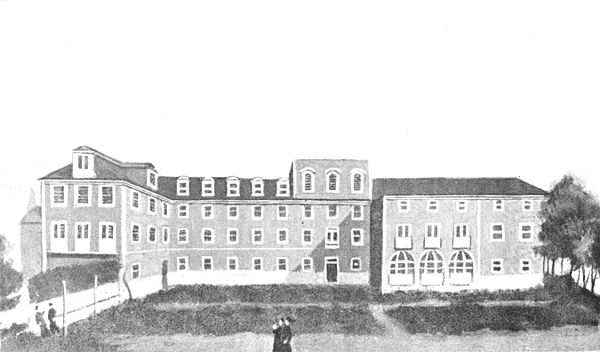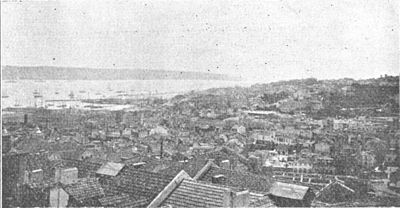Historical account of Lisbon college/Chapter 9
CHAPTER IX.
Towards the close of the eighteenth century, the College at Donay, and most of the other Continental establishments, having been swallowed up in the vortex of the French Revolution, the Superiors resolved to make every exertion to enlarge the house in Lisbon entrusted to their care, with the view to counteract, in part at least, the evils which might accrue to Catholicity from the suppression of the parent foundation. Divine Providence seconded their efforts and enabled them, without having recourse to contributions and entirely at the expense of the Establishment, to give the House the dimensions and form which it at present retains. More than seven thousand pounds were expended in this work, and accommodation was made for forty students as well as Superiors and Masters.
Besides a considerable sum which, by his economy, Father Fryer had been able to save, the funds for the purpose were supplied by the Misericordia of Rio Janeiro. Long prior to this date, a Portuguese in subdeacon's Orders, named John Dionysius d'Azevedo, unconnected with the College it would seem by any ties of friendship, but zealous for the propagation of the Faith in England, by Will constituted the College his heir. Many years, however, before his death he proceeded to Brazil where, whilst suffering from insanity, he put an end to his own life.
The Misericordia of Rio at once took possession of his goods on the plea that his Will was not valid, and there being no other claimant but the College, it was contended that the property should be devoted to public charity. 
THE COLLEGE.
On this occasion was erected what is called "The Observatory." This is an elevated square terrace formed nearly in the centre of the building, and commanding one of the most magnificent views in Europe. The object proposed in its erection was to form an astronomical observatory in the strict sense of the term. It was intended, as soon as the work should be completed, to establish a fund for the support of one of the members of the House, who should be employed exclusively in astronomical studies and observations, and who might communicate with the various Astronomical Societies of Europe. Circumstances, however, which were not foreseen, rendered the design abortive, to the great chagrin of Father Allen the principal projector, who ever after testified his regret and disappointment by terming the Observatory "Initium dolorum meorum."
From the terrace thus erected the view is truly magnificent As it stands in an elevated and central position it presents a complete panorama of the circumjacent city and its environs. On the south the majestic Tagus may be seen winding along from the ocean, bounded on one side by the buildings of the city, and on the other by a line of regularly undulating hills which rise well nigh perpendicularly from its surface. Where these hills gradually slope to the plane, may be seen an immense tract of woodland reaching on the west to the Atlantic, on the east as far as the eye can reach and 
VIEW SOUTH.
terminated on the south by the chain of the Arrabida Mountains.

S. EAST VIEW.
The western prospect as seen from the Observatory embraces a view of the ocean, of the Bugio fort at the mouth of the river, and a long range of hills which, gradually ascending from the Valley of Alcantara, are enlivened by rows of windmills which, formerly, were incessantly plying. Steam, however, has robbed the

SOUTH WEST VIEW.
view of much of its life, as these mills, with few excep tions, are now unused. On the east the view is more confined, except towards the south, where the woods on the opposite side of the river may be seen extending into the province of Alentejo.

VIEW WEST.

S. EAST VIEW AND S. GEORGE'S CASTLE.
by a church in honour of the Blessed Virgin. On the north the prospect varies, the view embracing a level

VIEW EAST.

VIEW NORTH
which form a part of the famous lines of Torres Vedras where, in 1810, Wellington effectually bade defiance to the legions of France.

N. WEST VIEW.
Father Fryer was possessed of good, but not shining, talents; an extraordinary piety was the leading feature in his character and this he incessantly laboured, both by word and example, to instil into those entrusted to his care. He was a strict economist and, notwithstanding the expensive improvements carried on during his administration, he left the funds of the Establishment in a very flourishing condition.
- ↑ Subsequently on his leaving the College for the Mission, Liverpool was the scene of Father Wilcock's labours, and the large Church of St. Antony, in the Scotland Road, is a monument of his zeal and labours.